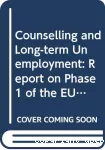 Accueil
Accueil
Détail de la collectivité
 >
EUROPEAN FOUNDATION FOR THE IMPROVEMENT OF LIVING AND WORKING CONDITIONS
>
EUROPEAN FOUNDATION FOR THE IMPROVEMENT OF LIVING AND WORKING CONDITIONSAuteur EUROPEAN FOUNDATION FOR THE IMPROVEMENT OF LIVING AND WORKING CONDITIONS
|
|
Documents disponibles provenant de cette collectivité (10)


 Affiner la recherche
Affiner la recherche
texte imprimé
Mario Giaccone ; EUROPEAN FOUNDATION FOR THE IMPROVEMENT OF LIVING AND WORKING CONDITIONS ; CEDEFOP - Centre européen pour le développement de la formation professionnelle | Dublin : European Foundation for the Improvement of Living and Working Conditions | 2009The EU Member States take a variety of approaches to continuing vocational training (CVT), and the social partners are involved in CVT governance and implementation to varying degrees. The European 'Copenhagen Process' aims to increase participa[...]
texte imprimé
Vladimir Spidla ; EUROPEAN FOUNDATION FOR THE IMPROVEMENT OF LIVING AND WORKING CONDITIONS | Dublin : European Foundation for the Improvement of Living and Working Conditions | 2009This issue of Foundation Findings deals with childcare services in Europe. Overall, the childcare sector is growing in the EU; however, working conditions vary in terms of employment practices, opening hours and coverage. Across Europe, a lack o[...]
document électronique
EUROPEAN FOUNDATION FOR THE IMPROVEMENT OF LIVING AND WORKING CONDITIONS | Dublin : Eurofound | 2009Despite progress during the last generation, gender gaps in the labour market are closing only gradually, if at all. At EU level the gap remains at over 17% and has not declined in recent years. Variations in national gender pay gaps around this[...]
texte imprimé
Maija Lyly-Yrjänäinen ; EUROPEAN FOUNDATION FOR THE IMPROVEMENT OF LIVING AND WORKING CONDITIONS ; Enrique Fernandez-Macias | Dublin : European Foundation for the Improvement of Living and Working Conditions | 2009To better understand the progress women have made thus far in the European Union, this report analyses the current situation and the obstacles women face on the way to top managerial positions in more detail. It first examines what the literatur[...]
texte imprimé
Antoine Valeyre ; Edward Lorenz ; EUROPEAN FOUNDATION FOR THE IMPROVEMENT OF LIVING AND WORKING CONDITIONS ; Damien Cartron ; Péter Csizmadia ; Michel Gollac | Dublin : Eurofound | 2009The quality of the working lives of European citizens is strongly dependent upon the forms of work organisation within which they operate. This report examines the four main types of work organisation that exist in Europe, outlines the character[...]
texte imprimé
Didier Fouarge ; Ruud J. A. Muffels, Éditeur scientifique ; EUROPEAN FOUNDATION FOR THE IMPROVEMENT OF LIVING AND WORKING CONDITIONS ; Heejung Chung ; Anna Manzoni ; Anke Thiel ; Ute Klammer ; Ton Wilthagen ; Ruud Luijkx | Dublin : Eurofound | 2008In recent years, the issue of flexicurity - how to maintain a balance between the needs of companies for more flexibility in employment contracts and the needs of workers for flexible working hours and for security of employment - has shifted to[...]
texte imprimé
Thomas Couppié ; Nathalie Moncel ; EUROPEAN FOUNDATION FOR THE IMPROVEMENT OF LIVING AND WORKING CONDITIONS, Dédicataire | [s.l.] : s.e. | 2007
texte imprimé
Jean-Paul Peulet ; EUROPEAN FOUNDATION FOR THE IMPROVEMENT OF LIVING AND WORKING CONDITIONS | Dublin : European Foundation for the Improvement of Living and Working Conditions | 2004With the objective of raising employment rates of older people the EU is promoting policies aimed at abolishing early retirement schemes, setting up more flexible working hours, improving health and safety, and developing access to lifelong lear[...]
texte imprimé
Pascale Vielle ; EUROPEAN FOUNDATION FOR THE IMPROVEMENT OF LIVING AND WORKING CONDITIONS ; Pierre Walthery | Luxembourg : Office des publications officielles | 2003This report looks at the challenges to social protection systems brought about by these flexible forms of work and new working time arrangements. It puts the spotlight on the problems arising from an ageing social protection system and the curre[...]
texte imprimé





